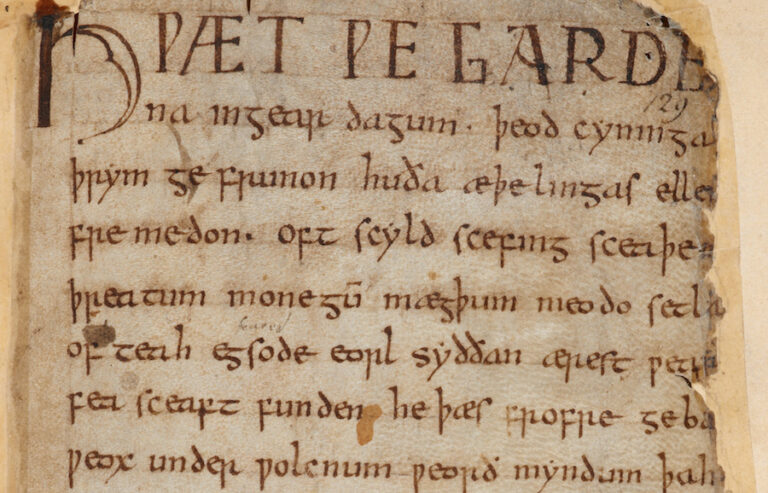Igbo Wisdom in God of Mercy

Okezie Nwọka’s debut novel, God of Mercy, out today, continues a powerful literary tradition of representing Igbo resistance to colonial pressures. Like Chinua Achebe’s Things Fall Apart (1958), God of Mercy narrates both the dignified beauty of Igbo village life and also the village’s struggle with its own traditions of banishing osu, or outcasts, and sacrificing infants in the Evil Forest—a struggle Achebe links to the appeal of missionaries’ Christianity. Like Chimamanda Ngozi Adichie’s Purple Hibiscus (2003), Nwọka’s novel takes up this history several generations on; God of Mercy’s central Christian leader is a Pentecostal pastor named Innocent Nwosu, a descendant of osu who seeks to counteract the pain of his forefathers’ exile by accruing power. Also like Purple Hibiscus, God of Mercy’s protagonist is a girl who struggles with speech—Adichie’s Kambili stutters, and Nwọka’s Ijeọma is mute—and lives under the sway of an angry father and a violent colonial Christianity. Both young women have mystical experiences: Kambili has a vision of the Virgin Mary in her own skin and in those around her, experiencing Roman Catholicism in a distinctively African frame; Ijeọma can fly.
This flight is literal, and it accompanies nine-year-old Ijeọma’s worship of Chukwu, the Supreme Being of Igbo tradition. The novel offers two precedents for this flight. As one character points out, the Catholic pantheon includes levitating saints, so Ijeọma’s worshipful expression is not beyond the pale of Christianity. More persistently, though, the novel links Ijeọma’s flight to the ancestor Solomto, “who flew to Ichulu after he was taken to be a slave.” The story of Solomto, or elsewhere Shalimar or Sugar Man—including Toni Morrison’s 1977 novel Song of Solomon, tells of Igbo people escaping slavery in Georgia by flying home across the Atlantic. Its presence in Nwọka’s novel underscores the significance of flight not just as a mystical expression of worship but as an act of resistance and recovery, one that refuses to forget the history of colonial violence initiated in the Triangular Trade.
Against these backdrops, God of Mercy imagines Ichulu, its central village, as a site of anti-colonial resistance where the Igbo inhabitants continue to practice their traditions, speak their language, and follow their dịbịa, or diviner, Igbokwe. Nwọka’s characters remember when “the white ones first came with friendship woven into their smiles,” wishing to build both school and church, but also when “their friendship turned to enmity and their smiles converted to bullets.” But in contrast to Adichie and Achebe’s characters, they recall how the gods granted power to the previous dịbịa to send the white ones away, while other nearby towns were not so lucky and were “toppled by the poison of a white god.”
Whereas Things Fall Apart memorializes this tragic toppling, God of Mercy figures traditional Igbo village life as continually vibrant. Likewise, although Purple Hibiscus exposes the internalized violence of patriarchal colonial Catholicism, suggesting a healthier syncretic Igbo Christianity, God of Mercy spends very little time redeeming the colonizers’ religion. Instead, Nwọka’s novel focuses on the Igbo tradition itself, treating it not as a fatally flawed or romanticized stable inheritance, but a living system that is not beyond change. If Achebe’s alternative to the Evil Forest is colonial Christianity and Adichie’s alternative to missionary Christianity is enculturation, Nwọka’s answer to the Evil Forest and colonial Christianity is something like mercy, a blend of epistemic humility and care for others deeply rooted in Igbo tradition, one that honors difference and embraces growth.
This lesson manifests in the whole community, but it centers on Ijeọma, whose lack of speech and capacity for flight leads to competing interpretations in the village: is she divinely gifted or an abomination? Ijeọma’s fate is bound up in the village’s grappling with its own traditions. As the preface opens, a powerful storm threatens Ichulu, and events unfold that first lead the villagers to exile several of their own children as osu and then demand a newborn be left in the Evil Forest. The leaders ultimately read these events as a war between Chukwu, the Supreme Being, and Anị, the earth deity whose taboos mandate sacrifice. Igbokwe determines that they will leave the child in the forest for a test period; if he survives, he will be allowed to live. Chukwu will have won out over Anị in a divine battle, and the community will no longer worship Anị or exile members to the Evil Forest.
But Ijeọma cannot leave the infant to die; she secretly feeds him, aided by her mother in her act of mercy, and thus intervenes in the village’s discernment of the power of the gods. The village continues to debate, not knowing of Ijeọma’s secret but reading her flight as a sign of divine favor. Ọfọdile, however, is sure his daughter is the cause of his own trouble—he sees himself as “normal” and Ijeọma as “an aberration,” “his greatest opposite.” He secretly sends her away to Amalike, to Pastor Nwosu’s church, to be “healed.” At Precious Word Ministries, Ijeọma is imprisoned with other child “witches and wizards”—a phenomenon that may seem to some readers as fantastical as flight but is drawn straight out of twenty-first-century reality. Thus, the primary conflict of the novel’s second half is Ijeọma’s imprisonment in the “Manifestation Quarters,” where the children are locked in tiny cells filled with rats and buckets of their own waste, given starvation rations, forced to pray three times a day, and publicly beaten to free them of demon possession. After an early attempt at escape fails and the children are forced to drink acid as punishment, Ijeọma learns that to avoid harm to her peers, she must cease to outwardly resist. She acquiesces, learning English through Bible lessons, which paradoxically allows her to express herself more fully in writing, both to other people and to her god.
In diary entries that punctuate the narrative out of chronological order, foreshadowing her deepest suffering, Ijeọma struggles mightily with Chukwu, whose creative power her life has always praised. She pleads for mercy from the Supreme Being, for rescue; she both confronts him and defends him against her own doubts in run-on sentences raw in their honesty: “but Chukwu is not a fool i know that Chukwu the Most Supreme Being is not a fool but how Chukwu how could you do this to me please please remove me from this prison you’ve seen me you see that I haven’t eaten.”
With nowhere else to go—no father’s house to return to, no means to support herself—Ijeọma graduates over the years from caged child to attendant. In one lesson, many years into her tenure at Precious Word Ministries, Ijeọma slips up in suggesting that the Christians could call God “Chukwu”—she’s roundly critiqued and told the Igbo word for God names a false god, not the Christian creator. But later, her boyfriend, Ikemba, another imprisoned child who is now an attendant, suggests both religions worship one and the same god, and that if Jesus had come to the Igbo, they would have recognized him as Chukwu’s son. Ijeọma disagrees, asking in her notebook, “Is Chukwu male, or elderly, or white? Does my religion not have power of its own, or do I have to conquer every corner of the world before Chukwu’s name has meaning? Look at what is happening in the name of your god. Look at those children; or have you forgotten?” Ijeọma’s resistance is anti-colonial: the Christian god as they know him is white and male, unlike Chukwu’s transcendence, and demands missionary conquest, doing immense harm. Ijeọma invites Ikemba to continue worshipping his god—she practices tolerance—but she will not join him.
Ikemba challenges Ijeọma, returning to the old critique: “What of Anị? Ask any Igbo person and he will tell you that people not fit to live are given to the goddess as a sacrifice.” But Ijeọma replies, “Anị is dead in my village”—“I saved a child, and it killed the goddess.” The scene again centers the sacrifices as a reason to abandon the Igbo tradition in favor of Christianity, but Ijeọma’s village exposes the false dichotomy. Through her merciful care for the child and the community’s willingness to reconsider old ways, Anị is defeated: the tradition is not beyond change.
This change has not saved Ijeọma from her imprisonment and suffering, however, and after years of relative peace, she is caught levitating in her room and imprisoned again in even worse conditions than before. It becomes clear that this is the period of undated diary entries—some of which appear very early in the novel—that express her deepest agony to Chukwu, a vacillation between anger, doubt, and faith. After weeks without food, she recognizes she is approaching death and writes her last confession, telling her chi—her personal god who nudges her toward goodness—that she is sorry for “moving through this world believing i was most innocent, most holy.” She recalls times she failed to listen to her chi, realizing that everyone acts out of their wounds and that everyone’s wrongs are done at their “level of responsibility,” including her own failure to free the children at Precious Word Ministries once she graduated to the role of assistant. She reaffirms Chukwu’s power and grace, then prays for the mercy of forgetfulness for all in her village, even her father, and attempts to end her life.
But a voice interrupts, asking what she’s doing. She says, “Are you Chukwu?” and the voice replies, “i am—i am.” The voice here echoes the story, recounted earlier in one of the children’s Bible lessons, of Moses and the burning bush, where the Hebrew god reveals himself as “I am who I am” and calls Moses to lead the enslaved Israelites to freedom. This response may suggest the reality of a Judeo-Christian god who transcends the white, merciless colonial God of Healing Word Ministries. On the other hand, the response may just as easily affirm Ijeọma’s question, “Are you Chukwu?” It may do both. Either way, uncannily, smoke begins to enter Ijeọma’s cell, not from a divinely burning bush but because the building is on fire. Ikemba unlocks Ijeọma’s door and tries to get her to escape, but she refuses to leave without the children, who they risk themselves to rescue. Ijeọma even goes back to rescue another attendant, using her gift of flight to carry them to safety.
The novel’s final pages end in a remarkable series of resolutions. Ijeọma, Ikemba, and the children escape their bondage and trek to the Place of Osu where her beloved cousin was banished nine years before, after being cursed by the king of Amalike—the same king who has been trafficking the imprisoned children for their organs and holding the church hostage to his financial contributions. The people of Ichulu come and receive not just Ijeọma and the children but also the osu, begging for their “compassion and mercy” and insisting “that no one is cast out before the Most Supreme, crying that no one is a slave when they are mercifully loved.” From Amalike, the town under colonial Christianity’s sway, people also come, “crying in many languages” for pity. They call Ijeọma “Ada Chukwu!”—first daughter of the Supreme Being.
In this almost mythical sequence, the division between osu and freeborn is healed; the imprisoned children are freed; the people of Ichulu and Amalike mingle; Ijeọma returns to her beloved family; and even the rift between Ikemba and Ijeọma’s beliefs finds some resolution. This resolution is not in syncretism but in epistemic humility, as Ijeọma writes, “chineke and jesus came from separated land; but what could i call them before i was?” Ijeọma’s statement preserves the particularity of Igbo and Christian deities but admits that she is a creature rather than creator, finite in her understanding. What matters, it seems, is the presence of mercy: a mercy the pastor’s wife Phyllipa expressed in giving Ikemba gasoline and keys to free the imprisoned children; a mercy the osu show in forgiving the community that exiled them; a mercy Ijeọma experiences not just in divine visitation but in literal rescue, both received and shared.
Significantly, the novel ends not with a new word but an old one sung to a “new people,” as Ijeọma meets the gathered community’s veneration by kneeling and weeping, mourning what has been lost, then singing an Igbo song repeated from earlier in the novel, one that insists upon respect across difference and honor for the old ways, ending, “For if one forgets that they are as the Other / They have begun to perish.” The healing and rescue wrought at the end of God of Mercy do not derive from colonial Christianity or even a new interpretation of the old ways but through faithfulness to longstanding Igbo wisdom: that every person is “as the Other,” and that life derives from this profound respect for difference. This lesson—a lesson of mercy—is itself the motivation for the people’s turning away from sacrifice and enforced exile. Christianity hovers at the edges of this framework with the suggestion that an Igbo ethic of respect for difference can make room for a merciful Christian faith, but the central imagination here is Igbo. The healing comes when the people go deep enough into the tradition to engender its own change.
This piece was originally published on November 2, 2021.


